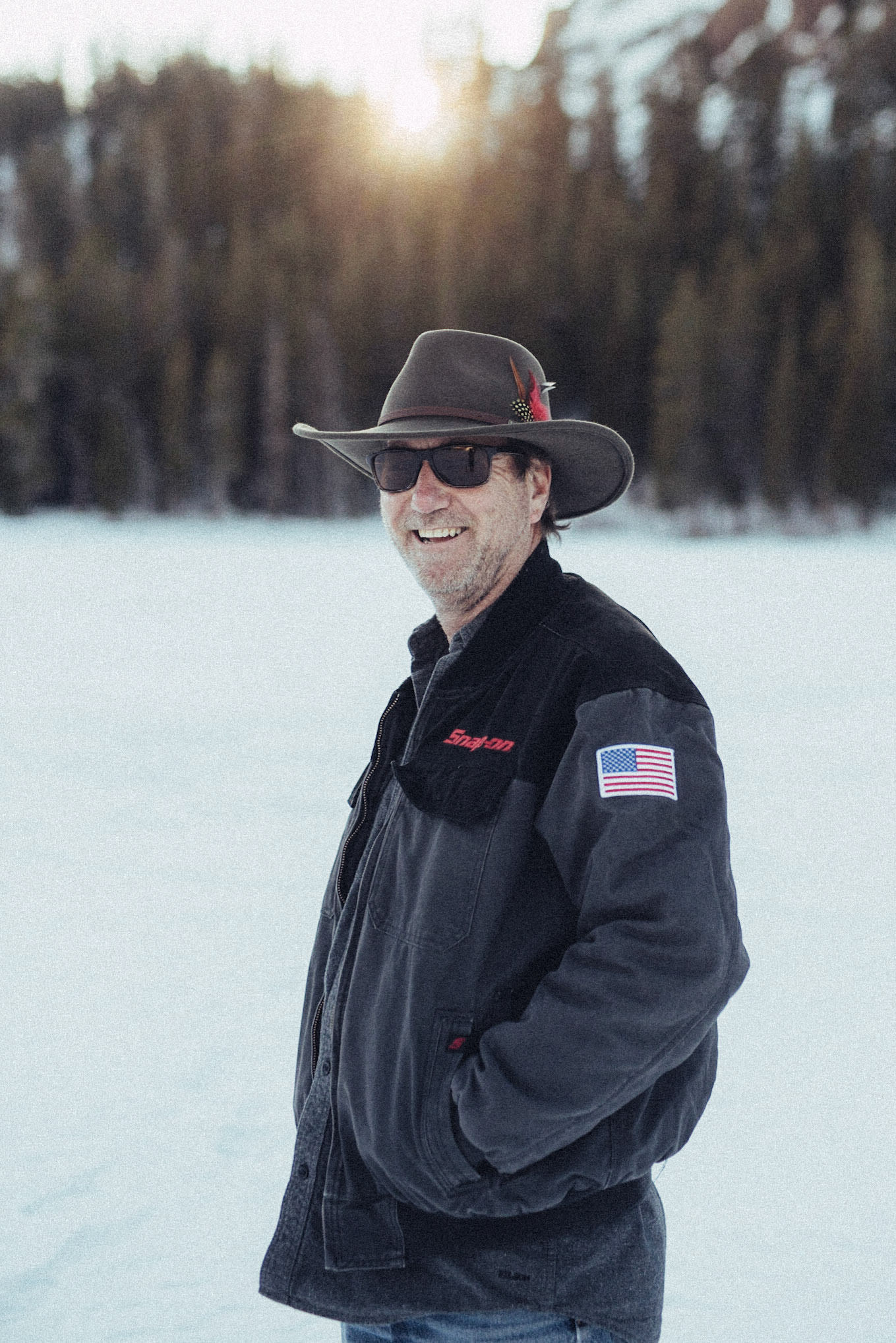I went to Bishop last week and got struck with my all-or-nothing thinking: drop off the grid and go to nature, as a way of building a life. This is the type of nature that called my mind to empty itself and experience the pine tree smells, the accessible mountains that were covered in veins of snow, the slow way of life in a small town, and the crisp morning air that holds a sharp sunlight in freezing temperatures. Here, a desire crept up as an existential crisis that gives me a hole in my gut, and it’s the one that I’ve spent so long discounting and avoiding and effectively renouncing (I crossed off “van life” on my list of 2022 New Year’s Resolutions as soon as I wrote it)—it was a desire that fueled a passion to just abandon everything to become a dirtbag. So, on the way home, I held onto the feeling, thinking of ways to move off the grid.
Back home in the suburbs, I’ve got nothing really going on. I started Wallace Stegner’s Angle of Repose, bought some other books that paint a portrait of landscapes, and now sit in coffee shops reading and writing. I created a goal to redirect my life by tearing all my plans down and rethinking my commitments. It was an abstract uprooting of everything that kept me tied to the life I live right now, driven by my motto: “no thinking,” (I think), “only feeling.” I feed the hole in my gut, looking up environmentalist jobs and graduate programs and grants for wildlife conservation photography, as the life immediately around me started to dissolve. In spite of Costar’s astrological insistence to talk to strangers, I sat alone and isolated in a coffee shop, constructing a mental life more expansive than the corners of the shop I sat in. My life, all of a sudden, became full of trackless potential: only possibility, little actuality—to be realized, one day, in the mountains.
So, I scrolled through alec.earth, one of the cool nature photography blogs I enjoy. I’d recommend it, just as I, months ago (or a year ago?), sent Alec a book recommendation: Annie Dillard’s novel, For the Time Being, which is a thinking book, at the very least (but now, for me, my motto remains a forced naïveté: “no thinking only feeling!”). And I saw, on his blog, that he did the same thing that I did: he bought more Annie Dillard books after reading one. He got it, I assumed, understanding the same thing I understood, both of us thinking along the same lines as Annie Dillard. And the hole in my gut stopped craving a new life for just a tiny bit, knowing that the thinking I had been doing, while renouncing the desire to drop off the grid, was, in fact, a pretty cool thing, and less isolated than I thought. No need to escape to the mountains, I guess, when my mental world, now shared and beyond just my own mind, will do.
Permit me to pause, for just a bit, and nod to the knowing sociologists, or psychologists, or whomever, the hypothetical people in the corner with their notebooks out who, hypothetically observing, hypothetically suspect any renunciation in the first place—as a symptom of a deeper issue, which, here, might be my induced coffee-shop isolation. It is difficult to renounce a way of life when there’s a community keeping you tethered to the world you’re experiencing right now. Or you’re not gonna search for a new life when the people around you are supportive of the life you’re already building right now.
The reality of this hole-in-the-gut situation is that as long as the thinking world is isolated and dissonant from the world constructed and experienced by those around me—a thinking world, then, filled with a skepticism and detachment—I’ll search for a natural world to correspond to it. And that world is either defensive and isolated in the coffee shop, or out, spaciously in a lonely expanse, in the woods, idyllic. The gut-hole takes a healthy ounce of solitude and transforms it into an entire life slowed down and distanced, where thinking and feeling merge, no longer on defense. Of course, slowness and distance are good things, in doses.
But if the thinking world catches on, if others share in the mind-space seemingly isolated, then, I believe, the feelings can emerge—where the thinking can be an honest expression of the less cognitive approaches to a life, now shared. “No one can go it alone,” Annie Dillard quotes from the Buddha in For the Time Being. So, skeptically trading backdrops of solitude, so-called “civilization” for “nature” or “nature” for “civilization,” thinking for feeling or feeling for thinking, misses, in some sense, the mark (although it might hit another mark). The mark, I believe, lets down its defenses to share in both the thinking and the feeling (they’re not really that separate), suspends its skepticism for understanding, in a life more heartfelt and immediate than abstracted in trackless potential.
But still, trust me, I’ll find a way to move to the mountains one day.









